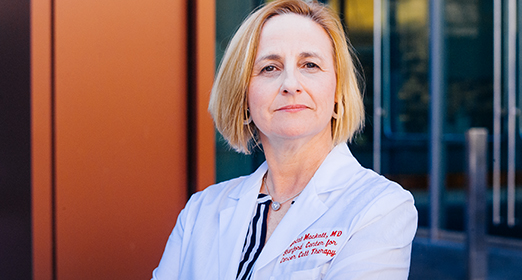There’s a new kid on the block in cancer treatment. Actually it’s an old kid who’s been around for awhile but is being heralded as new and potentially groundbreaking: immuno-oncology. The science, essentially the body’s immune system armed to fight back against cancer, dates back to more than a century. Pediatric oncologist Crystal Mackall, MD, gave me some historical background in this 1:2:1 podcast:
"More than 100 years ago, there were serious attempts to try to harness the immune system. It came about when there were sporadic observations of patients with uncontrolled infections—of course, in those days, there weren’t antibiotics like we have today—who would sometimes have remissions or regressions of their tumors. So there was a clear signal that something about the immune response could control a cancer. But the problem was you couldn’t harness it. It would happen sporadically. The biology responsible for it was elusive."
Mackall, who has been in the field for 26 years and came to Stanford in January 2016 from the NIH, where she headed the Immunology section of the National Cancer Institute, told me about the dry period, when the science was viewed with skepticism:
"We, the field of immuno‑oncology, the folks in that field, were regarded as good scientists. But considered on the fringe. We were not taken seriously… We had difficulty getting research funding—although there were areas that did believe in it. I worked at the National Cancer Institute in Bethesda, Maryland. Since the 80s, they have had an active program focused on trying to develop immunotherapy. It’s not to say there was no support. But you had to kind of get used to being on the last day of the meeting in the last session. You weren’t front and center."
Today, that has changed. In fact, Mackall is the beneficiary of a new $10 million grant from entrepreneur and philanthropist Sean Parker’s new Parker Institute for Cancer Immunotherapy. The Parker-Stanford partnership, she told my colleague Ruthann Richter, “will create a powerful synergy that will enable the deep scientific and clinical resources within Stanford Medicine to be rapidly and efficiently translated into new immunotherapies for patients with cancer.”
Mackall is cautionary but still exuberant about the future for potential breakthroughs that will disrupt the field of cancer treatment.
“I don’t think even the most staunch believers envisioned the kind of success that we’re seeing today,” she told me. “I don’t want to overstate it, but I believe very strongly this is the biggest thing to hit cancer in the last decade and likely will dominate the next one."
This story originally appeared on SCOPE.
